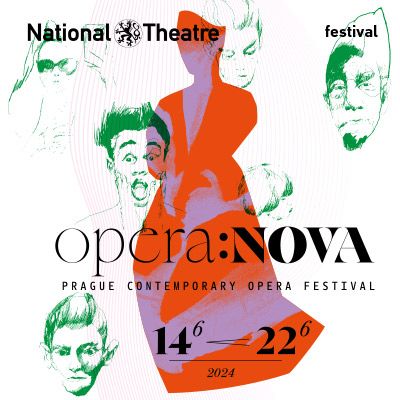Prague has 3 opera houses, London one
OperaAlexander Goldscheider czechs out the latest scene stealers:
Prague’s opera life has blossomed in the last years and its ambition has been fruitful. Three opera houses – National Theatre, Estates Theatre and the State Opera – are staging not just operas, but major projects like the four-year Musica non grata revival of composers persecuted by the Nazis, as well as festivals like Opera Nova that started this weekend.
Per Boye Hansen, the Norwegian director of Prague’s three opera venues since 2018, systematically involves international and Czech artists. The current Opera Nova festival features world premieres by Jiří Trtík (Kafka’s Letter to His Father), Šimon Voseček (Ogres) and Charles Baumstark (Les Papillons de Terezín). Dani Howard’s The Yellow Wallpaper premiered last August in Copenhagen and later enjoyed great acclaim at Sadler’s Wells.
The Opera Nova kicked off with the 1996 version of György Ligeti’s Le Grand Macabre at the State Opera. Both in spite and because of it being still so very avantgarde, the first of two premieres on Friday was an unqualified success. Its stage director, set and costume designer in one person is the British Nigel Lowery with the young Czech conductor Jiří Rožeň making a huge contribution. Ligeti’s anti-antiopera is demanding for everyone: the orchestra, singers and, quite frankly, the public.
Those unfamiliar with Ligeti, and there were quite a few on Friday, were rather shocked right from the onset by the overture for 12 car horns, which later seems rather normal compared to the impossible array of what is labelled as percussions and involves just about anything not classified as a music instrument, from paper to pots and pans and metronome played at the wrong tempo. Jiří Rožeň is making his name by concentrating on modern operas and he certainly inspired and controlled the impressive orchestra. He had at his disposal an excellent cast with admirable Thor Inge Fatch, Arnheiður Eiríksdóttir, Magdaléna Hebousse, Marcus Jupither, Ivo Hrachovec, Victoria Khoroshunova and, last in this selection, but not least, Eir Inderhaug. The State Opera Chorus, so fabulous in Nabucco earlier this year, did not disappoint.
Allow me to be personal: I emigrated from Prague in 1981, having witnessed a decline of modern music life after the Soviet-led invasion in 1968. I started visiting my homeland after the Velvet Revolution in 1989 and saw many opera productions ever since. The State Opera ones were often shabby and labelling some as second class would be merciful. And then the building saw its major reconstruction and re-opening in 2020 and as if the music life was reconstructed, too. All the operas I saw were, as is the trend, ambitious, some to be appreciated by just that, some not even helped by it, some great. But to see Le Grand Macabre in Prague in 2024, a mad opera about a mad end to a mad world, as its Czech translator and dramaturgist Ondřej Hučín puts it, goes beyond my maddest dreams. It is certainly worth a trip, and if some may find the production too mad, they will get a certain chance to be mad about the beauty of Prague.






Comments